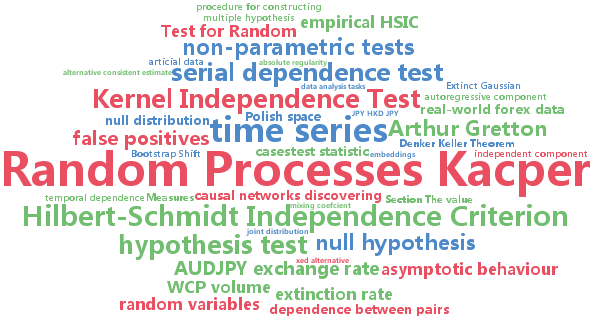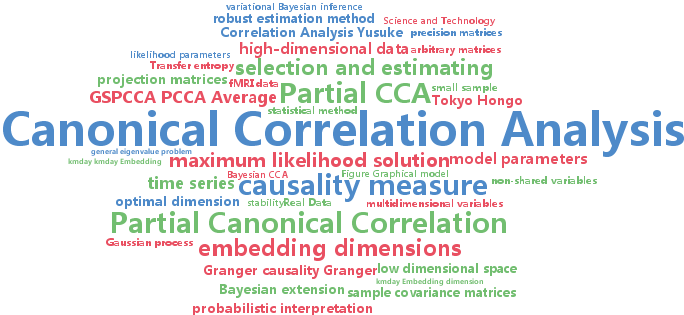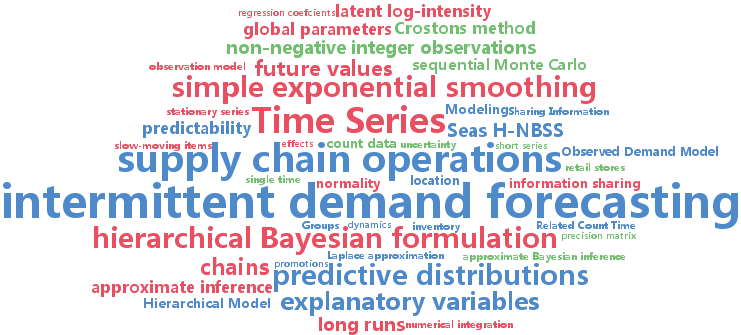time series
-
Kacper Chwialkowski and Arthur Gretton
A Kernel Independence Test for Random Processes (pdf)
A non-parametric approach to the problem of testing the independence of two random processes is developed. The test statistic is the Hilbert-Schmidt Independence Criterion (HSIC), which was used previously in testing independence for i.i.d. pairs of variables. The asymptotic behaviour of HSIC is established when computed from samples drawn from random processes. It is shown that earlier bootstrap procedures which worked in the i.i.d. case will fail for random processes, and an alternative consistent estimate of the p-values is proposed. Tests on artificial data and real-world forex data indicate that the new test procedure discovers dependence which is missed by linear approaches, while the earlier bootstrap procedure returns an elevated number of false positives.
-
Yusuke Mukuta and tatsuya Harada
Probabilistic Partial Canonical Correlation Analysis (pdf)
Partial canonical correlation analysis (partial CCA) is a statistical method that estimates a pair of linear projections onto a low dimensional space, where the correlation between two multidimensional variables is maximized after eliminating the influence of a third variable. Partial CCA is known to be closely related to a causality measure between two time series. However, partial CCA requires the inverses of covariance matrices, so the calculation is not stable. This is particularly the case for high-dimensional data or small sample sizes. Additionally, we cannot estimate the optimal dimension of the subspace in the model. In this paper, we have addressed these problems by proposing a probabilistic interpretation of partial CCA and deriving a Bayesian estimation method based on the probabilistic model. Our numerical experiments demonstrated that our methods can stably estimate the model parameters, even in high dimensions or when there are a small number of samples.
-
Nicolas Chapados
Effective Bayesian Modeling of Groups of Related Count Time Series (pdf)
Time series of counts arise in a variety of forecasting applications, for which traditional models are generally inappropriate. This paper introduces a hierarchical Bayesian formulation applicable to count time series that can easily account for explanatory variables and share statistical strength across groups of related time series. We derive an efficient approximate inference technique, and illustrate its performance on a number of datasets from supply chain planning.


